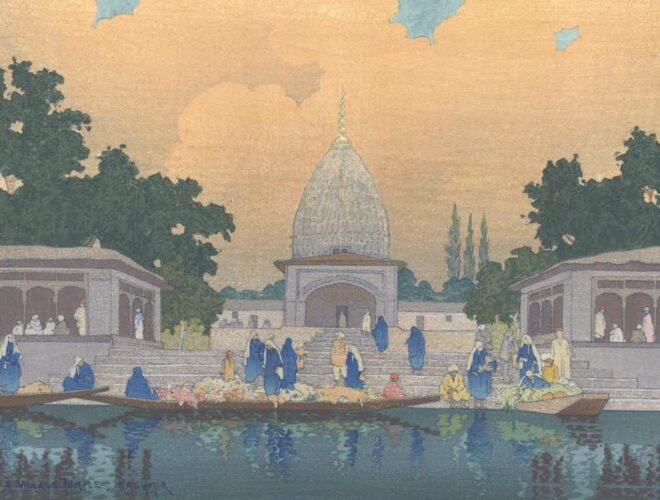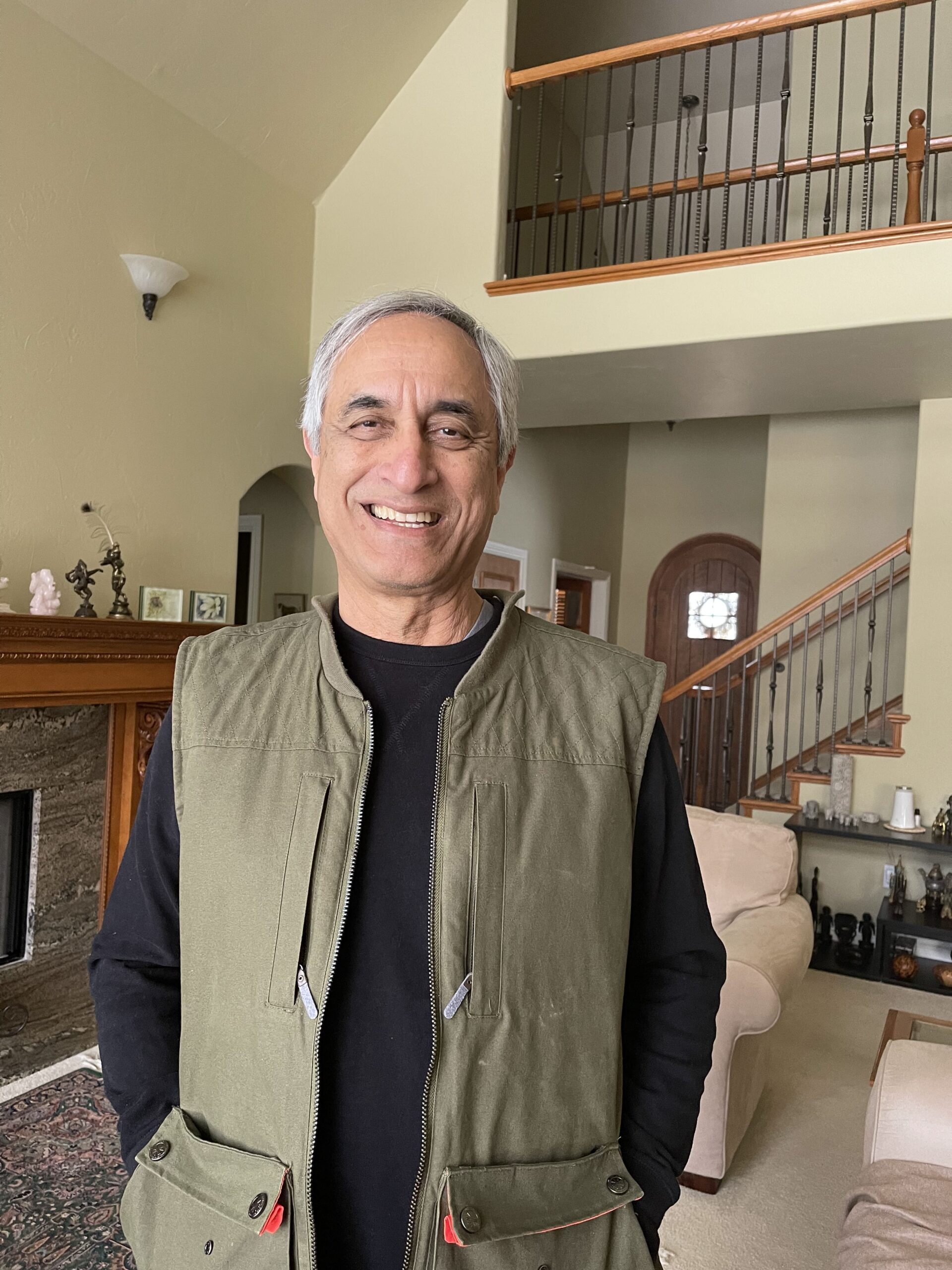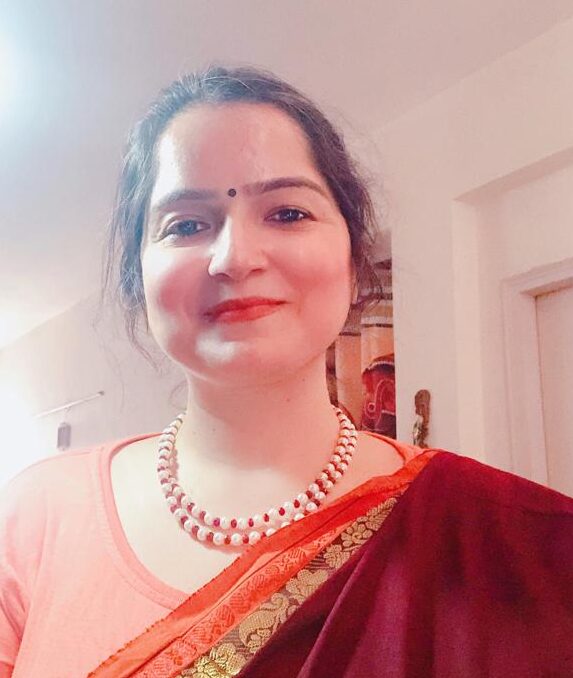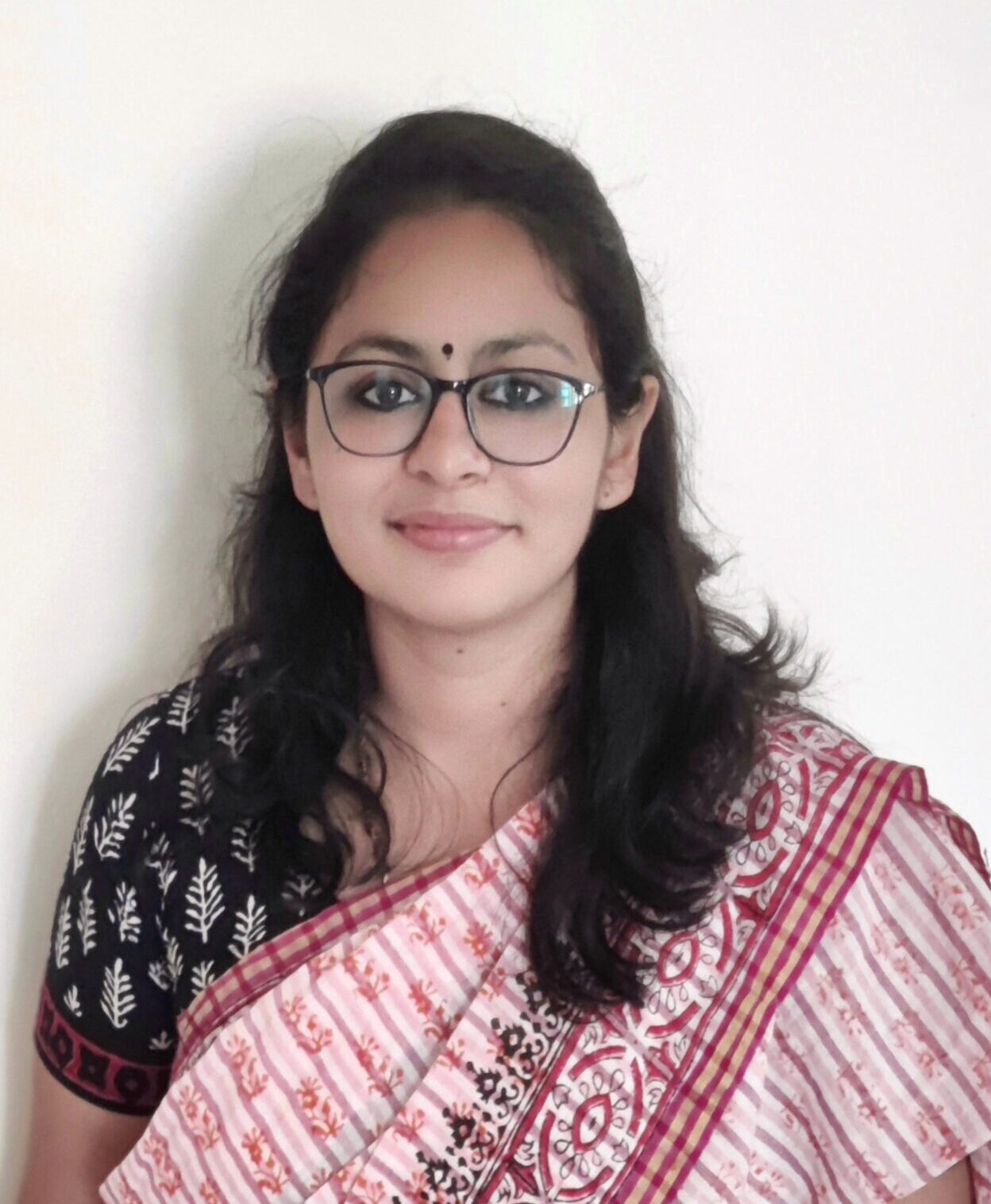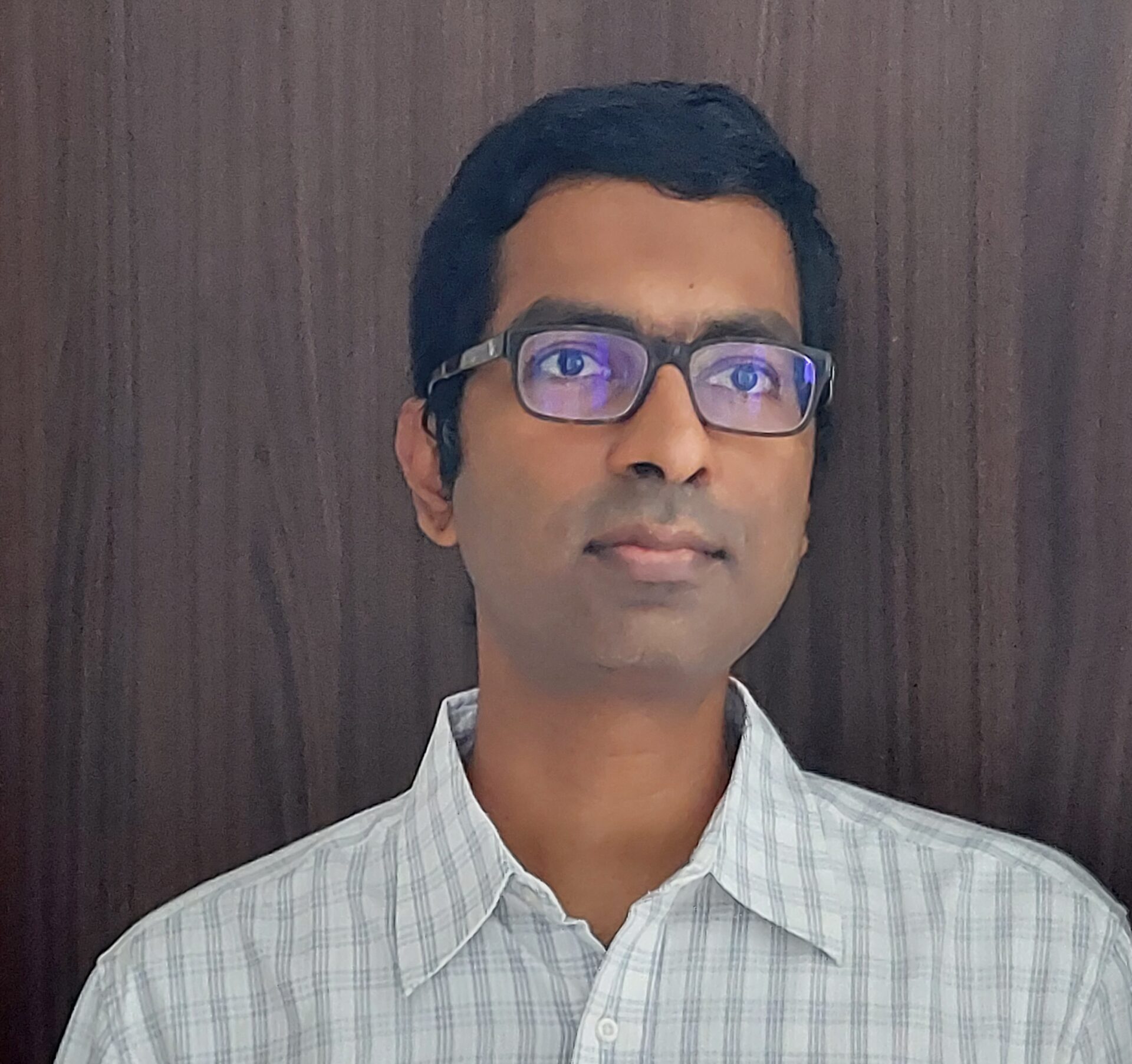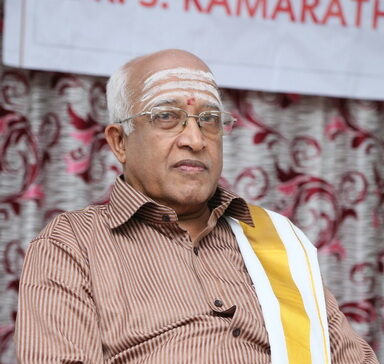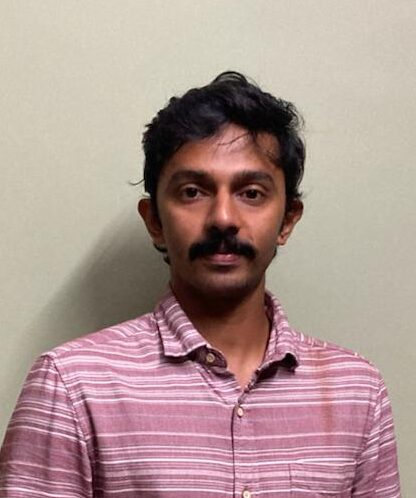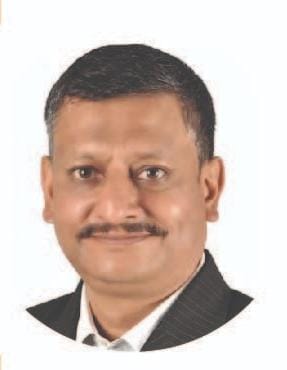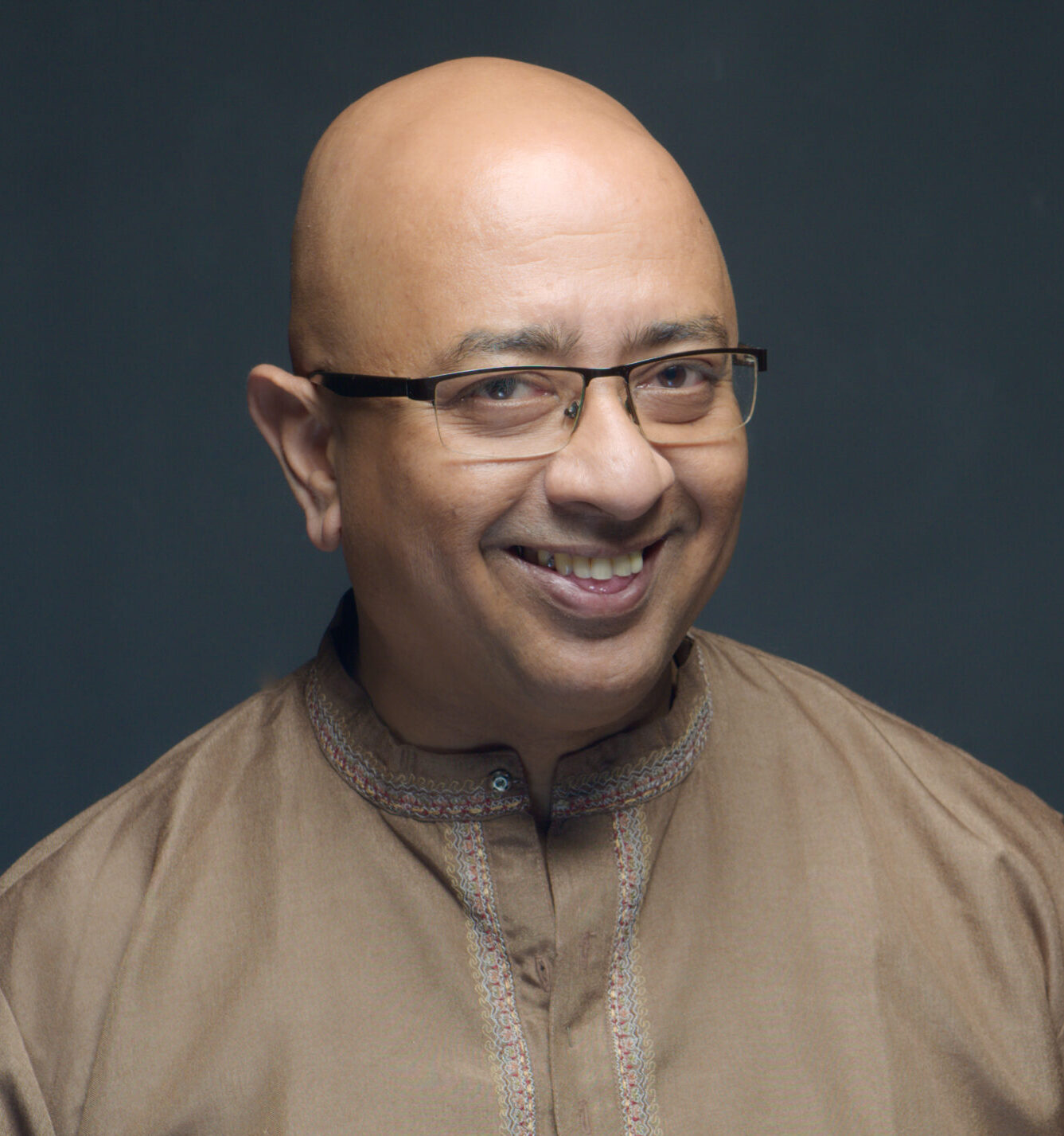KASHMIR
Cultural Epicentre of Bharat
Of the various culture and thought centres that have impacted Bharat, Kashmir has been a huge source of many creativity-generating and paradigm-shifting offerings. Different poetic works from the rest of ancient and medieval India mention Kashmir/Sharada Peetha as the yearned destinations or dream locations for their characters. Folk narratives from the rest of India have kings, princes, and princesses of Kashmir as their celebrated characters. Itihasas and Puranas from the rest of India praise the maahaatmya of the tirthas and Kshetras of Kashmir. Besides hosting several punya tirthas and punya sthalas that have attracted the rest of Bharat for ages, Kashmir has also sent seekers to the rest of Bharat. Sharada Desh has been a center of learning for traditional knowledge systems from other regions and has sent learners to similar centres of learning across the country. There has been a continuous exchange of learning and learners between Kashmir and the rest of Bharat.
Kashmir has been mentioned in Panini’s Asthadhyayi, Mahabharat, Puranas and Brihat Samhita (Kumari, 1968). Patanjali, Abhinavagupta, Vishnu Sharma, Bilhana, Kalhana and Bhamaha are some of the eminent scholars from this region. Vasugupta’s Shiva Sutra is an important text of the Advaita tradition of Kashmir Shaivism. According to Kalhana, the first known king of the region was Gonanda (in 1000 BC). The Native king of Kashmir who minted coins in the early 6th century was Pravarsena. In Nilmat Purana, sage Vaisampayana tells king Janmayjeya that the Goddess Uma is the same as Kashmira and that the holy region of Kashmira is possessed of all sacred places. The entire region of Kashmir is described as a Maha Teertha in Nilmat Purana, with every inch of land akin to a Teertha. Sharada Peeth was regarded as a great center for learning. Alberuni mentions Devi Sharada in his account of the most famous idols of the Hindus, right after the image of the Surya Deva at Multan, Vishnu Cakraswamin of Thanesvar and the Linga of Somnath (Kalhana’s Rajatarangini, 1900/2007).
Kalhana’s Rajatarangini indicates that people from various regions of the modern-day India would come to Kashmir for pilgrimage and/or studies. There were special Mathas for people from different regions. Sharada Desh Kashmir was known as Second Benares for the kind of knowledge and learning that emanated from the region. The impact of Kashmiri researchers, philosophers, scholars, and practitioners in various fields of study has contributed to human civilization in various forms. Several works like “Contribution of Kashmir to Sanskrit Literature” by Dr K S Nagarajan (1970) substantiated the contribution of Kashmir in the areas of Poetics, Poetry, Philosophy, Tantra, ancient Indian History-writing etc.
Aalankaarikas from Kashmir have contributed the largest number of paradigms of Sanskrit poetics such as the theories of Rasa, and kaavyaatma /kaavyajeevita paradigms of Dhvani, Vakrokti and Auchitya, among others. What came to be known as Kashmir -Shaivism is the most robust overarching system of theory and practice that has impacted the Shaakteya, Sri Vidya, Kerala Tantra and several other traditions of theory and practice, throughout the length and breadth of our sacred geography. Through the work of Abhinavagupta, the polymath from Kashmir, this system became the integrator of multiple fields such as Shaastras of Naatya, Kaavya, Yoga, Vedanta, and Tantra.
Adi Shankara from Kerala made Sharada Peetha of Kashmir as his final destination of digvijaya yaatra. While leaving an indelible mark on Kashmiri people’s spiritual culture, he brought Sharada and Chandramauli from Kashmir to the four Aamanaaya Peethas established by him in the four corners of India.
To celebrate the integral significance of Kashmir for the rest of Bharat and vice versa, INDICA is organizing a conference on the 15th of October 2022.
The conference is curated by Dr. Nagaraj Paturi, Senior Director – INDICA and Dimple Kaul, Servant Leader – INDICA Courses.
Schedule
|
#
|
Speaker
|
Time
|
Topic
|
|
1
|
Hari Kiran Vadlamani
Founder, INDICA
|
8:45 am
|
Welcome Address
|
|
2
|
Prof. Subhash Kak
Regents Professor at Oklahoma State University & Polymath |
9:00 am
|
The Wonder That Was Kashmir How Kashmir spread the Vedic Tradition beyond the Himalayas
|
|
3
|
Dimple Kaul
Servant Leader, INDICA Courses
|
9:30 am
|
Welcome Note & Context Setting
|
|
4
|
Dr. Nagaraj Patturi
Senior Director, INDICA
|
9:45 am
|
Importance of this Conference
|
|
5
|
Megh Kalyanasundaram
Director – Special Projects, INDICA
|
10:15 am
|
Kashmir before the Common Era in Brill’s Encyclopedia of Hinduism and Wikipedia: A Critical Analysis in 2022
|
|
6
|
Maitri Goswami
|
10:40 am
|
Comparative Analysis of the Metaphysical Aspects of Kashmir Shaivism and Vallabh Vedant in the Context of Shuddhadwait Vedant
|
|
7
|
Dr. Suman Badami
Director, Natya Vimarsha Centre for Dance, Mumbai
|
11:05 am
|
Vimarsha and Samavesha – Cognition Through Stasis
|
|
8
|
Neha Mittal, IAAS
Indian Audit & Accounts Service (IAAS) Officer
|
11:30 am
|
Nandikshetra: The Ancient Tirtha of Kashmir
|
|
9
|
Arvind V Iyer
|
12:00 pm
|
Guṇatraya in the Gītārthasaṅgraha: A Polymathic Reading from Kāśmīra
|
|
10
|
Dr. Ramaratnam S.
Vice Chancellor, JKUniversity, Odisha -Visiting Professor, Oxford University, Mauritius University
|
12:25 pm
|
The Vedantic Ideals of a 20th Century Kashmiri Poet
|
LUNCH BREAK
|
11
|
Dr. Padmini Tolat Balaram
Visiting Professor, Sasi Creative Institute of Design
|
2:00 pm
|
Pashmina and Kani Shawls of Kashmir
|
|
12
|
TG Anandhu Krishnan
Research Scholar in Vedic Sciences |
2:25 pm
|
The Psychological Impacts of Re-Implementing Kashmiri Script (Sharda)
|
|
13
|
Rakesh Koul
Core Sharada Team Foundation |
2:55 pm
|
In Service of Sharada Lipi
|
|
14
|
Dr. Rajshekar Krishnan
Coach & Seeker |
3:20 pm
|
Leadership Principles from Kalhana’s Rajatarangini
|
|
15
|
Dr. Nagaraj Patturi
Senior Director, INDICA
|
3:45 pm
|
Concluding Remarks
|
|
16
|
Dimple Kaul
Servant Leader, INDICA Courses
|
3:55 pm
|
Vote of Thanks
|
Speakers
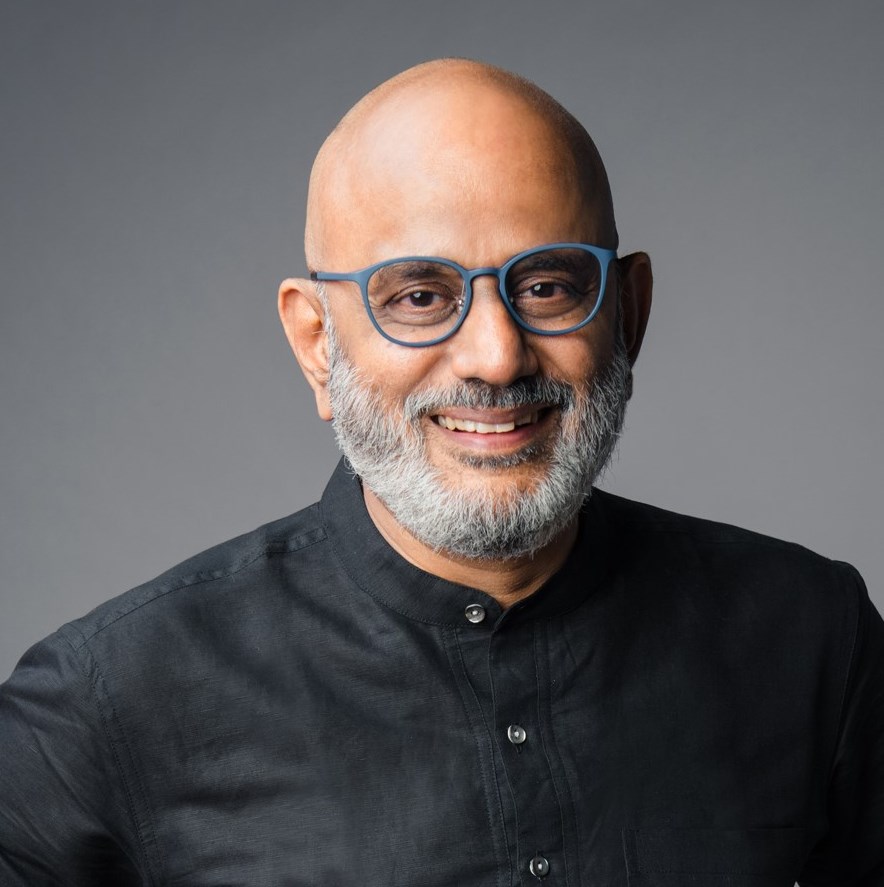
Hari Kiran Vadlamani
Founder, INDICA
Hari Kiran Vadlamani ( Hari) is a Chartered Accountant by qualification and a serial entrepreneur, having been involved in four ventures in Technology and Energy sectors.
He is deeply passionate about Art, Philosophy and Indian Cultural Heritage and is a Dharmic- Indic Liberal.
In 2015 he transformed himself into a Social Entrepreneur pursuing the preservation, protection and promotion of Indian Heritage. He founded INDICA ( www.indica.in) and NICE (www.niceorg.in) , both not for profits in the area of Cultural Education and Entrepreneurship.
Hari brings in an entrepreneurial mindset to his work of delivering indigenous knowledge as a service, product or an experience by incubating a portfolio of ideas, rapid prototyping, absorbing failures, applying a three horizon framework, thinking of scale etc.
Having the mindset of a venture investor, Hari is focussed on backing passionate individuals. He encourages, enables and empowers them to discover, nurture and express their creative potential. He believes in transforming the narrator and not the narrative.
A strong advocate of pluralism, Hari envisions a vibrant ecosystem of diverse set of players and ideas and seeks to build the enabling infrastructure.
Hari believes that Indian thought and the indigenous way of life from various global traditions have solutions to some of the key challenges we face today, especially sustainability, happiness, well-being and peace. He is working on developing the requisite institutional mechanisms that can transform a billion global consumers into conscious thinkers, entrepreneurs, leaders and most importantly seekers.
He has developed a unique six dimensional integral strategy for pursuing this vision.
Padmashri Prof. Subhash Kak
Regents Professor at Oklahoma State University & Polymath
Prof. Subhash Kak is an Indian-American Computer Scientist. He is the Regents Professor of Computer Science Department at Oklahoma State University-Stillwater, an Honorary Visiting Professor of Engineering at Jawaharlal Nehru University, and a Member of the Indian Prime Minister’s Science, Technology and Innovation Advisory Council (PM-STIAC).
Prof. Kak has published on the History of Science, the Philosophy of Science, Ancient Astronomy, and the History of Mathematics. Prof. Kak also published on Archeoastronomy, and advocated the idea of Indigenous Aryans.
Dimple Kaul
Servant Leader, INDICA Courses
Dimple, the Servant Leader at Indica Courses, is a learner, writer, poet, marketer, transformation coach and Life Enthusiast!
Her education spans the humanities (MA, Liberal Arts), technology (B.E., Electronics and Communication) and business management (MMS, Marketing). She is currently pursuing Ph.D. in Development Studies.
Dimple has led projects in austere environments, working with several multinational corporations. She has also been guiding several nonprofit organizations through strategic initiatives, serving as a pro-bono volunteer consultant, communications executive and transformation coach.
With two decades of professional experience across Media, Telecom and Technology, she now serves the field of Indigenous Knowledge Systems through INDICA Courses – the pioneering EdTech start-up founded by INDICA.
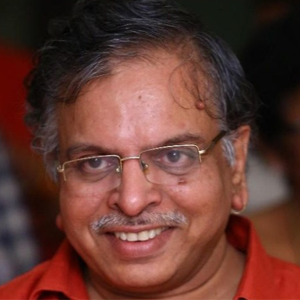
Dr. Nagaraj Patturi
Senior Director, INDICA
Trained in Sanskrit and Advaita Vedanta by his hyper-polyglot, polymath and spiritually accomplished sakala-shaastra-paarangata father, late Sri Paturi Sitaramanjaneyulu garu, Dr Nagaraj Paturi is seriously committed to the transmission of Vedic sciences to the present generation. In his PhD thesis (1998, University of Hyderabad), he developed an Indic Model of Myth Criticism of Literature and in his MPhil (1987, University of Hyderabad), he foregrounded Vakyapadiya as the theoretical foundation of the Ashtadhyayi. In addition to over 50 publications and about 60 conference/seminar/workshop papers, Dr Paturi has designed several courses pertaining to the contemporary applications of Vedic Sciences and has been successfully teaching them and getting them taught. Formerly Senior Professor of Cultural Studies FLAME School of Communication (& FLAME School of Liberal Education) and a Visiting Professor, University of Chicago (USA), Dr Paturi is currently Senior Director and Chief Curator at INDICA, a Distinguished Professor, Curriculum Designer, Executive Committee Member, Board of Studies, MIT School of Vedic Sciences (Pune, Maharashtra), Member, Board of Studies at Kavikulaguru Kalidasa Sanskrit University (Ramtek, Maharashtra) and Rashtram School of Public Leadership (Sonipat, Haryana). He is also the Editor-in-Chief of International Journals of Studies in Public Leadership and is a member of the Advisory Council of Veda Vijnana Shodha Samsthanam (Bengaluru, Karnataka). He has provided consultancy to numerous culture research, theatre, and dance innovation projects. He has authored scores of creative writing works for Classical Dance, Modern Theater, and magazines and has delivered several series of talks and other programs on Radio and Television channels.
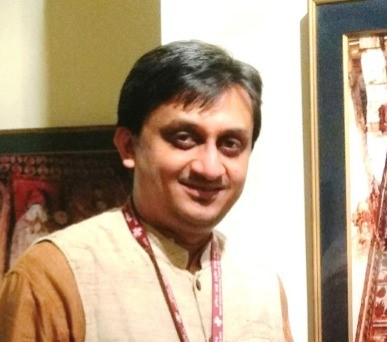
Megh Kalyanasundaram
Director – Special Projects, INDICA
Megh Kalyanasundaram is an Indian citizen with close to nine years of lived experience in China, an alumnus of ISB and is currently Director Special Projects at INDICA. His post-graduate specialization in Strategy, Leadership and Marketing included a study of research methods. His professional experience includes stints as a Market Leader at a Global Fortune 50 firm, as Head of Business Development at a leading Indian talent development multinational and he has served a term on the Board of a Shanghai-based not-for-profit. His academic research interests and 20+ papers span some aspects of ancient Indian chronology, Indian Knowledge Systems, Landscape in Indic texts, Ancient Indian Jurisprudence, Ideas of India and Philosophy. For his creative contribution to the first edition of the International Day of Yoga, he was invited by the Permanent Mission of India in the United Nations to attend the inaugural event at the UN. Other professional and pro-bono pursuits have included building differentiated digital platforms for Indic texts targeted at specific learning and research needs and music. His research-based compositional Sanskrit album 'Bhārata and her Kāśmīra' has been listed by the Indira Gandhi National Center for the Arts (IGNCA) while his subsequent album 'Indian Knowledge Systems and Yāskācārya's Nirukta' has recently been accepted for listing by the Vedic Heritage Portal. In 2022, Megh was invited by the National Museum Institute (NMI) to contribute content for multiple projects currently underway at NMI, including ones on Jammu Kashmir & Ladakh and Kedarnath.
Maitri is a Vaishnavite by faith and a learner of Vedanta, Bharatiya culture and Sanskrit scriptures. She has pursued MA from Sampoornanand Vishvavidyalay, Varanasi with Vedant as the main subject.
As the 17th descendent of Mahaprabhu Shri Vallabhachary, she has been studying all the Sampradayik scriptures of Pushti-Bhakti-Margiya sect from her father Shri Sharad Goswami and her revered Guru Goswami Shri Shyammanoharji for the last 14 years.
In accordance with her duties towards her sampraday, she currently preaches the scriptures written by Mahaprabhu Shri Vallabhachary and Vedic philosophy.
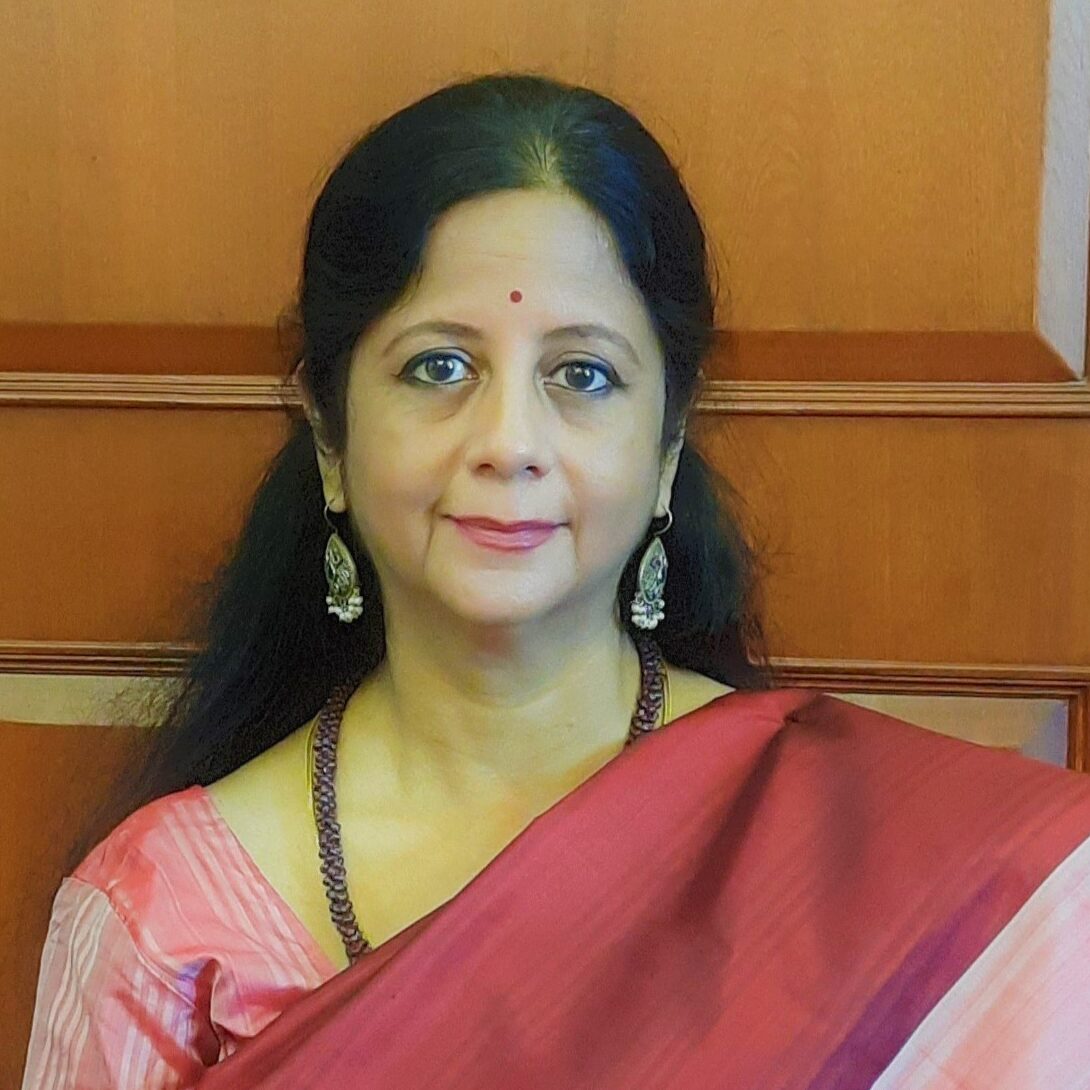
Dr. Suman Badami
Director, Natya Vimarsha Centre for Dance, Mumbai
Dr Smt Suman Badami, is a Bharatanatyam Dancer and Teacher based in Mumbai. She has a Ph.D. in a comparitive study “Religious & Aesthetic concepts 10th Century Kashmir Saivism”, Mumbai University and a Fellowship for Research in Bharatanatyam (A contemporary perception of Traditional Aesthetics) from Ministry of Culture, Govt of India. Her training in Bharatanatyam was in Chennai under Sri S K Kameswaran and Smt Saroja Kameswaran.
She runs a dance academy “Natya Vimarsha “ in Mumbai and has conducted several arangetrams and performances of the students.
As a committee member of Powai Fine Arts, Mumbai, she coordinates professional dance and music performances along with the team and also coordinates training in classical Music and Dance by professional Teachers for students registered with the Powai Fine Arts Music and Dance Academy.
She is a recipient of several awards, some of which are “Nritya Kala Sagar”by Nateswar Kala Mandir, “Shivali Nritya Shiromani” by Shivali Society, “Natya Ratna” , Rasika Ranjani Sabha, Mumbai , Tarang Ratna “ 2022 , Takshashila Nrityakala Mandir.
She has presented papers on Bharatanatyam and aesthetics of Classical Indian Dance at several seminars and conferences including the World Congress of Dance, the Natya Darshan Conference Chennai, TISS and recently for Accenture Women’s Day.
She has performed extensively at several venues and festivals in India and abroad and online.
She is a Member of the U N International Dance Council and ABHAI (Association of Bharatanatyam Artists of India)
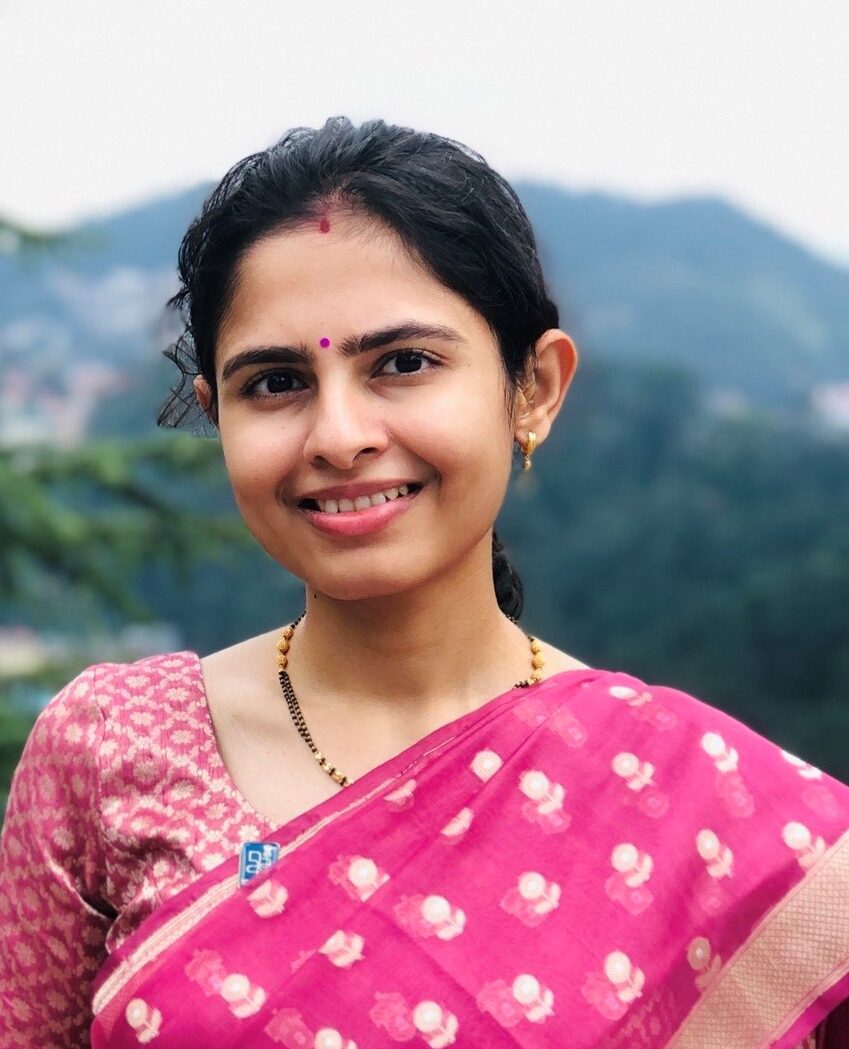
Neha Mittal, IAAS
Indian Audit & Accounts Service (IAAS) Officer
Neha Mittal is an Indian Audit and Accounts Service (IAAS) Officer of the 2018 batch. Currently She is posted in the Uttarakhand Audit office under CAG of India. Her work involves audit of government departments and schemes being implemented in the state. Apart from her official work, she has deep interest in Indology and related aspects of Indic civilization. Currently she is working on two books on regional history of Uttarakhand and Kashmir.
The book on Uttarakhand is a narrative nonfiction book which describes the culture of the state in reference to its geographical setting: the majestic Himalayas. Central Himalayas have always fascinated and attracted a diverse set of people since antiquity to this day—royal princes, political refugees, pilgrims, ascetics, religious reformers, scholars, traders, researchers and hunters. This book is the story of their engagement with this holy land and the way they have shaped its history till present.
The book on Kashmir is a narrative nonfiction book which would convey the vibrant history of Kashmir from its origins till 12th CE as penned in Rajatarangini, in an engaging way. In process, the book also brings forth Kashmir’s contribution to Indian civilization along with highlighting its connection with various regions of the Indian subcontinent.
Arvind V Iyer has a research background in Computational Neuroscience and Biomedical Engineering. His interests as an independent researcher include Indian languages, appreciation of classical performing arts, and contemplative practices.
Dr. Ramaratnam S.
Vice Chancellor, JKUniversity, Odisha -Visiting Professor, Oxford University, Mauritius University
Dr.S.RAMARATNAM - Vice Chancellor, JKUniversity, Odisha -Visiting Professor, Oxford University, Mauritius University - presented papers in conferences held in several parts of the globe, -authored a number of books (website: ratnam.weebly.com) - latest books are Management Mantras, Sanskrit Drama, The Ritual Traditions of India and the Yogasūtra of Patañjali.
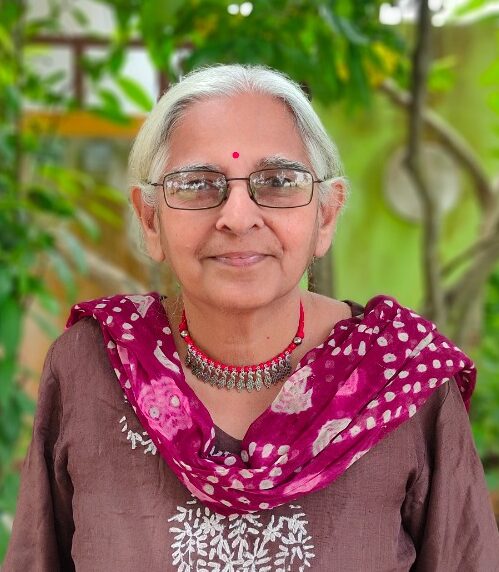
Dr. Padmini Tolat Balaram
Visiting Professor, Sasi Creative Institute of Design
Prof. Padmini Tolat Balaram is a visiting Professor at Sasi Creative Institute of Design, was Professor of Design at Visva-Bharati, DJ Academy of Design and has taught at NID, NIFT and CEPT University in India. She was invited by Universities and Museums in Japan, China, South Korea, Thailand, USA.
Her Research experience started as a field researcher for Dr. Lotika Varadarajan’s book South Asian Tradition of Kalamkari in 1976. This was followed by Documenting and reviving natural indigo and its use (1979-80), Natural Dyes of Northeast India for D.C. Handicrafts (1984-90), Al Dyeing of Bastar and Koraput (1985, 1997-2000), A Comparative Study of Indian and Japanese Indigo (1995-96), Confluence of Culture among 16 minorities of Southwest China and South Korea (2003), Her Ph.D. Thesis on Movement of Textiles between India, China, Korea and Japan (2012), Textile Route from India to Japan via China and Korea (2005-06), where she studied travel of Indian chintz from India to Japan and its impact on starting Wa sarasa in Japan.
She was a Research Fellow of Japan Foundation thrice (1995-96), (2006-07), (2019), Asia Scholarship Foundation (2003), Fulbright (2013), Nehru Trust for Victoria & Albert Collection (2014).
She has also worked as consultant for UNDP to revive natural Dyes of Uzbekistan, D.C. Handicrafts & Handlooms. She has widely lectured, published and held 36 exhibitions of her natural dyed textile paintings and wall hangings.
She has carried out research on Woollen Handlooms of Jammu and Kashmir for D. C. Handicrafts among the bomb blasts, just before the Pandits were driven out from J & K. (1988-89) and later in (2005). Her paper pashmina and Kani Shawls of Kashmir’ is mainly based on her field research in Kashmir and literature survey on Pashmina shawl.
TG Anandhu Krishnan
Research Scholar in Vedic Sciences
The thesis is related to setup an indigenous or Vedic model of Political Union in the Indian subcontinent for contemporary times (using the framework of Arthashaastra)
Published two Articles titled:
1). The Need of a Union in Indian subcontinent: A Vedic Perspective
2). Re-establishing the University of SharadaPeeth under BBIN: The Psychological Integrity of Janapadha
Practitioner of Indian Classical Art forms like:
* Ancient Indian Martial Art- Kalaripayatt (15 years of practical experience)
* Bharatanatyam and Kuchipudi (8 years of practical experience)
Rakesh Koul
Core Sharada Team Foundation
A veteran of the Healthcare IT sector, Shri Rakesh Koul is the Director of Core Sharada Team Foundation. Under his guidance, the Core Sharada team has been working relentlessly for the revival of the Sharada Script and has taught thousands of learners. This dedicated team of volunteers is focused on the resurgence of this sacred script. Rakesh Ji has conducted various workshops and seminars for the revival and awareness of Sharada. Core Sharada also publishes Maatrika - a quarterly magazine published in Sharada. They have also developed an Android App and keypad for Sharada lipi and are currently collaborating with scholars to translate many unexplored Sharada manuscripts.
Dr. Rajshekar Krishnan
Coach & Seeker
Rajshekar has been a life-long seeker of spiritual wisdom. He is an ardent devotee of Bhagavan Sri Ramana Maharshi. He is an engineer by qualification and a corporate trainer by profession.

